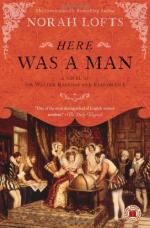|
This section contains 6,982 words (approx. 24 pages at 300 words per page) |

|
SOURCE: “Sir Walter Ralegh as Poet and Philosopher,” in Essays on Shakespeare and Other Elizabethans, Yale University Press, 1948, pp. 121-44.
In the following essay, originally given as a lecture in 1938, Brooke unfavorably compares Raleigh to his English contemporaries, Philip Sidney, Edmund Spenser, and Christopher Marlowe.
When Sir Walter Ralegh was beheaded, October 29, 1618, there died the last of the Elizabethan romanticists. He outlived his age, and came in the end to suffer by the defects of the very virtues which had made him great.
He has a vast deal in common with each of his romantic colleagues, Sidney, Spenser, and Marlowe. He shares Sidney's courtly brilliance and chivalry, Spenser's political imagination, and Marlowe's luminous independence of mind. He is more like each of the three than any of them was like another. He had been acquainted with them all: with Sidney at the intriguing court, with Spenser in Irish...
|
This section contains 6,982 words (approx. 24 pages at 300 words per page) |

|


